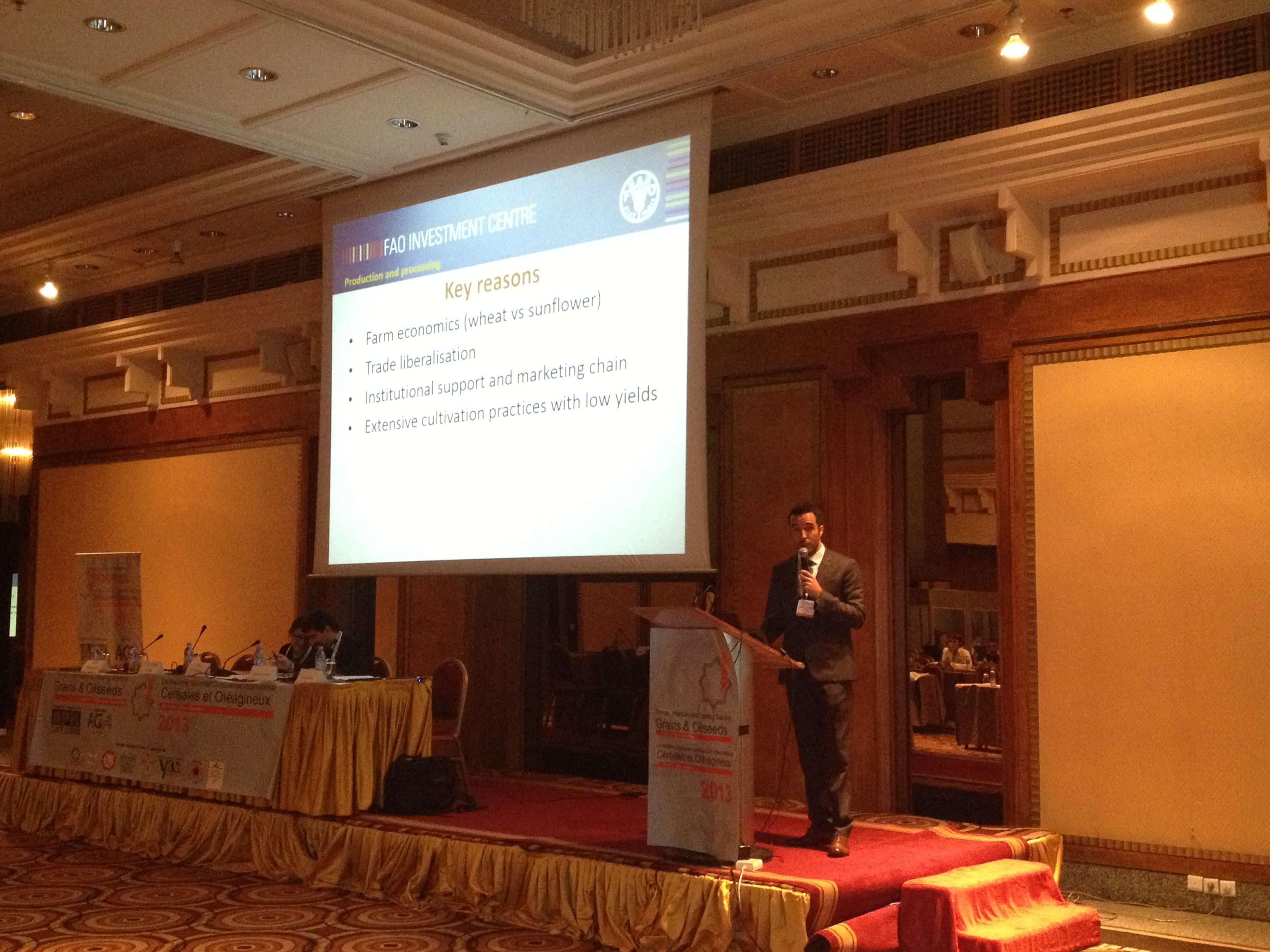New study on Oilseeds in Morocco presented at the 8th International Trading Summit on Grains and Oilseeds in Casablanca

FAO’s Investment Centre participated in the 8th International Trading Summit on Grains and Oilseeds in Casablanca, Morocco on 6 to 7 March 2013. The annual event brings together approximately 200 private and public sector stakeholders in the grain and oilseed trade industry to share and analyze information on the past season and discuss how to apply lessons learned. Traditionally the Summit, organized by Ukrainian company APK-Inform Agency, takes place in North Africa and draws sector leaders from the Russian Federation, Ukraine, Kazakhstan, Egypt, Jordan, Turkey, Syria, Saudi Arabia, Lebanon, Libya, among others. This year, thematic sessions addressed the global grain trade; European grains in North African countries; opportunities for Black Sea grains on the North African market; soybeans and by-products in South America and their importance to North African countries; the flour milling sector in Morocco; modern flour milling technologies; and consumption of vegetable oils in Morocco.
Under the cooperation between FAO and the European Bank for Reconstruction and Development (EBRD), a study has been prepared that analyzes the oilseeds sector in Morocco in order to identify recent trends in oilseed production, consumption, trade and policy and ultimately to propose policy options to facilitate a more efficient supply chain. At the invitation of APK-Inform Agency and the National Flour Milling Federation of Morocco, the initial findings of the oilseeds study were presented at the Summit. The study and policy options were presented to a representative of the Moroccan Ministry of Agriculture and Maritime Fisheries (MAMF) at a meeting organized by the FAO Representation to Morocco in advance of the Summit.
Domestic oilseed production and crushing have seen a substantial decline because of market reforms and policy changes, in particular the reduction of tariffs under the United States Free Trade Agreement (US FTA), while edible oil and oilseed meal consumption has grown. This change has lead to a shift from imports of oilseeds for crushing to direct imports of oil and meal. The refining sub-sector is still an ongoing and very profitable sector mainly due to the current trade regime, but protections are set to be lowered so there will be need to invest in efficiency improvements in order to continue benefiting from growing Moroccan vegetable oil consumption.
Following these initial presentations, the FAO Investment Centre, in close collaboration with FAO Representation in Morocco, will continue to discuss the key policy options with the Moroccan government as well as finalize the oilseeds study in collaboration with EBRD (which will tentatively be published by May 2013). In addition, under the FAO/EBRD cooperation a new study on the olive oil sector in Morocco will start in April 2013.
For more information on the Summit and to see the presentation, please click here.
